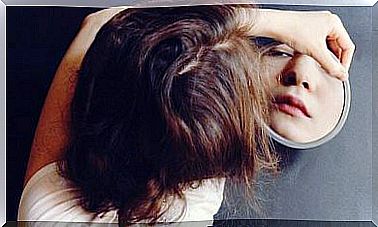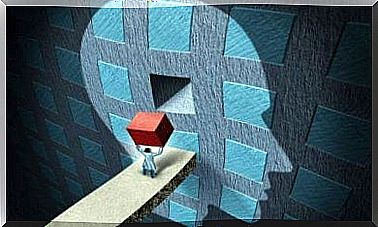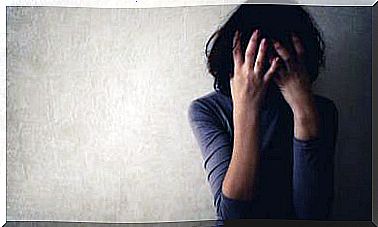The Four Types Of Psychological Pressure

Psychological pressure is a psychic sensation, the product of two mental forces that pull in opposite directions. These forces can have very different natures, such as wishes or obligations. We are talking about a situation that causes discomfort. Thus, in principle, it could be thought that it is something negative and, however, it is not always so.
We have all ever experienced a situation of psychological pressure. In addition, we have also all had the feeling that it was necessary for us to take a necessary step that we resisted on occasion. Other times, that pressure contributed nothing. The point is that, as we can see, there are several types of psychological pressure, as we will explain shortly.
1. Positive, one of the types of psychological pressure
Positive psychological pressure is one that gives us initiative. The most typical form of this is “you can do it.” It takes place when doubts or fear act as a brake and an extra dose of energy is necessary to act.
The main characteristic of positive pressure is that it favors execution or performance. These are situations that a person must overcome to be better and the function of pressure is to motivate them to do so.

2. Negative
There is negative psychological pressure when trying to persuade or force someone to act in a way that can be self-destructive. The usual thing is that whoever presses goes over at his insistence, reaching saturate the receiver.
Negative pressure can also be exerted by a circumstance. For example, when someone is forced to sell their home to pay off outstanding debts. Or when unemployment is very high and this forces you to settle for lower wages. In these cases, the most appropriate thing is to resist actively or to find a fast path through which this pressure can be diluted.
3. Interior
Inner psychological pressure is that which is born from the person who experiences it. Usually it has to do with a sense of duty. However, it can also be dictated by distress, fear, anger, and other emotions or moods. In this case, its essential characteristic is the fact that it arises in the mind of the sufferer.
The internal pressure can be positive or negative. It is positive when it is born out of personal awareness. In that case, the person sees reality with a certain objectivity and knows that it is convenient to push himself to achieve something he wants, or to maintain something that he values. As it is, there is no incompatibility between pressure and desire.
This type of psychological pressure turns negative when it is born from a neurotic desire or an exacerbated mood. For example, when a person is pressured to be perfect or achieve achievements that they do not really want, but that can satisfy others. The result of exerting that pressure is an internal conflict.

4. Exterior
As with the interior, the exterior pressure can also be positive or negative. It all depends on the context in which it occurs and the horizon towards which it is directed. One of the basic features of this type of pressure is that the person receiving it also has the power to give it meaning.
A common situation that illustrates this occurs when someone is required to turn in a job on a certain day or at a certain time. The clock and calendar have nothing to do with how that person lives or acts. They are neutral stimuli and it is the individual who turns them into a constructive or destructive element.
There are those who turn external pressure into an absolute limitation. Others assimilate and incorporate it, in such a way that it does not generate negative effects. As you can see, it all depends on how it is managed and not on the pressure itself.
Psychological pressure is present in the day to day of many of us. It is convenient to learn to identify what type it is and how it can be approached. In this way, we can make it work in our favor.









